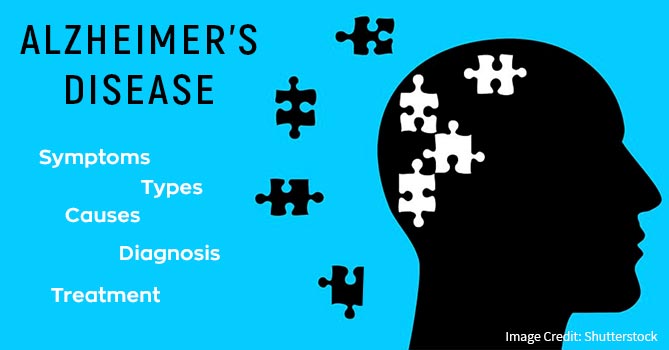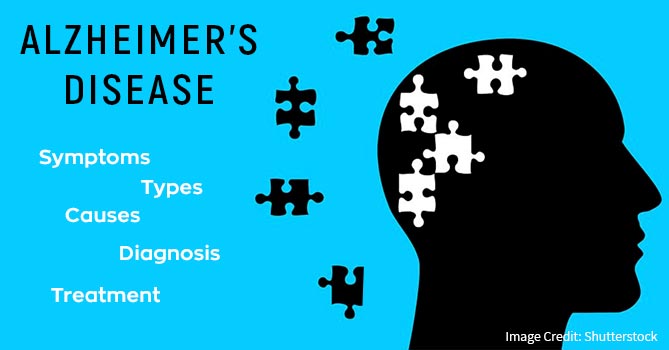
Alzheimer’s disease can be defined as the most common type of dementia, a chronic disorder of mental processes which are caused due to memory disorders, impaired reasoning, and personality changes. It usually gets severe and worsens over time because of which sometimes a person is unable to do daily tasks.
It is believed that 2 out of 3 people globally do not have any understanding of dementia or Alzheimer’s disease. There is stigmatization and misinformation regarding this disease which is a global problem. It can only be tackled by global actions. To spread awareness and clear the associated stigma, September is marked as World Alzheimer’s month and 21 September each year is celebrated as World Alzheimer’s Day.
To know more about Alzheimer’s disease read below:
Symptoms of Alzheimer’s disease –
The early symptoms of Alzheimer’s disease include the difficulty in remembering newly learned information.
The other symptoms of Alzheimer’s include-
- Reduced ability to comprehend new things.
- Reasoning impairments.
- Repetitive questioning or the same conversations.
- Changes in behavior and understanding.
- Loss of empathy.
- Inability to recognize faces and objects.
- Difficulty in reading text (Alexia)
- Misplacement of items.
- Poor judgments and unable to make decisions.
- Increasing anxiety and confusion.
- Disturbed sleep, delusions, and hallucinations.
- Struggle to find the right words during a conversation.
Types:
Mild Alzheimer’s (Early on-set Alzheimer’s) – It is the beginning stage of the Alzheimer’s disease. The beginning of cognitive impairment takes place which causes difficulties to a person in doing simpler tasks like following the daily routine, paying bills, tasks at work etc. It takes longer to perform these tasks, however, the person remains functional.
Moderate Alzheimer’s – In this stage the memory worsens and dependency on other person increases. There is a significant amount of neuronal damage in which the symptoms become more intense. People in stage two don’t have a control over their thought process and are unable to perform their routine tasks.
Severe Alzheimer’s (Late-onset Alzheimer’s) – During this late stage, the brain cells start dying due to spreading of plaques and tangles which ultimately result in sinkage of brain tissues. People who reach this condition are usually bed-ridden and unable to communicate. Often there are very fewer chances of getting cured.
Cause of Alzheimer’s disease
The exact cause of Alzheimer’s disease is not known; however, as per diagnosis, it is found that the brain starts shrinking over time. The first affected areas are the ones which are responsible for holding memories. As per scientific research, the deformity starts emerging way before the symptoms appear. A protein named amyloid plaques around the cells of the brain. Deposits of another protein named tau form tangles within the brain cells. The level of acetylcholine, a neurotransmitter also reduces in the brain of people who suffer from Alzheimer’s disease.
How to diagnose Alzheimer’s?
Alzheimer’s disease can’t be diagnosed merely by the symptoms. Proper tests are to be conducted by doctors and evaluation of signs and symptoms is to be done to ensure the disease and procure appropriate treatment.
The evaluation of the following should be conducted –
- Impaired memory or cognitive skills.
- Changes in personality and behavior
- The degree of memory or thinking changes.
- Ability to function in daily life.
- The cause of emerging symptoms.
- Additional laboratory tests or brain-imaging tests are also conducted for confirmation of the disease.
What is the treatment and prevention for this disease?
There is neither any derived treatment for people suffering from Alzheimer’s disease nor any proven ways to prevent it. However, doctors have suggested that leading a healthy lifestyle can reduce the risk of this disease as regular physical activity and exercise helps in improvising brain health and also may slow the progression of the Alzheimer’s disease.
Clinical trials are being conducted, research is still evolving but there is still a long way to go.
One can follow the six steps given below for preventing Alzheimer’s disease –
Social engagement – Studies suggest the more we connect with people, the more good moments we live. Social engagement helps in making new memories and also helps a person to live life in a better way. Your brain will be stronger if you adopt a healthy lifestyle.
Sound sleep – Sleep deprivation impairs one’s ability to think and make decisions. Recalling information, problem-solving etc. to becomes extremely difficult because of it. Establish a regular sleep schedule to reinforce the natural functioning of the brain.
Exercise regularly – Regular exercise can reduce the risk of Alzheimer’s disease by 50%. 30 minutes of regular exercise can be extremely helpful for maintaining good brain health.
Healthy diet – A person can adopt a Mediterranean-style diet which comprises of plant food, yogurt, fishes, olives, vegetables, fruits, beans, nuts etc. This significantly contributes to reducing the risk of Alzheimer’s disease.
Stress Management – It is really important to take time to nourish your inner peace. Respect the connection of body and mind and make mental peace a priority.
Mental stimulation – Crossword puzzles, brain teasers actually help in sharpening the brain. Play games like sudoku, read books and polish your brain. The bigger the challenge, the larger the benefit to the brain.
This month, let us spread awareness, work against dementia and combat all stigma and misinformation prevailing in the society.
Related Links:





